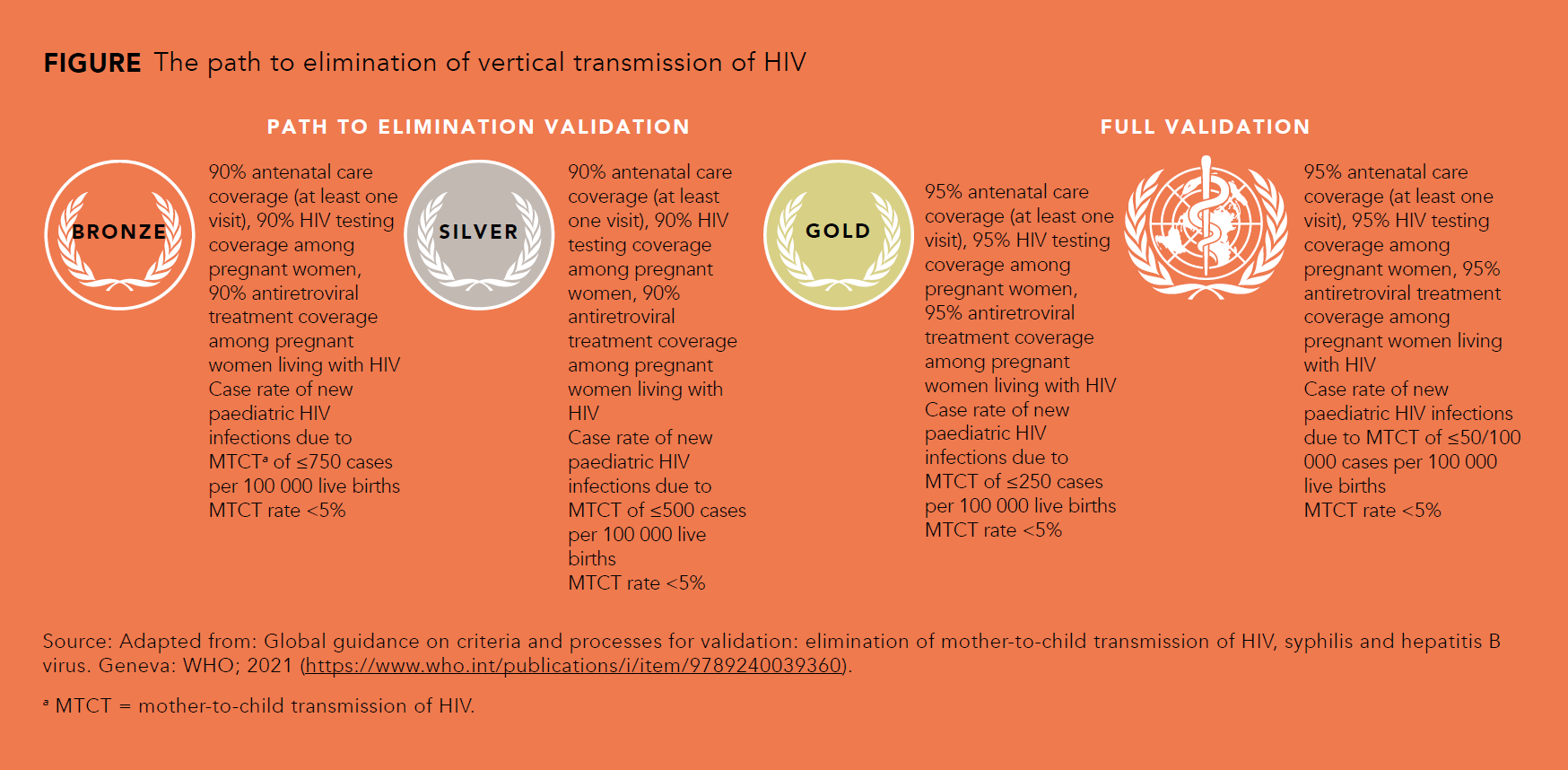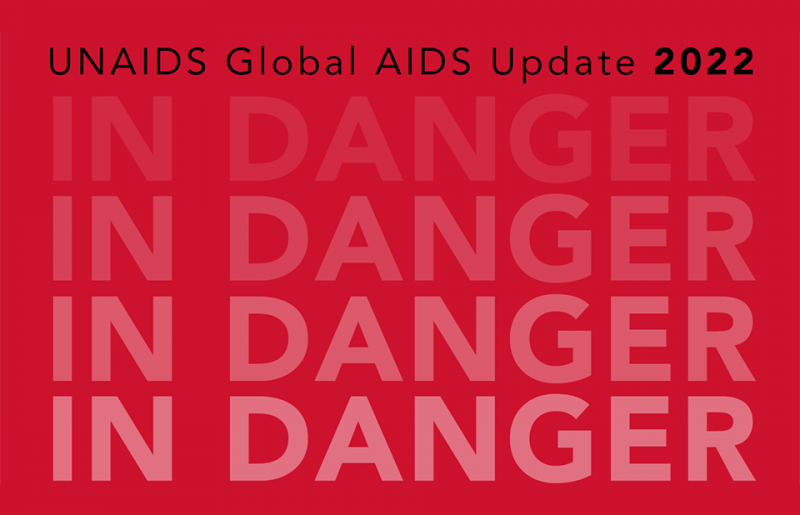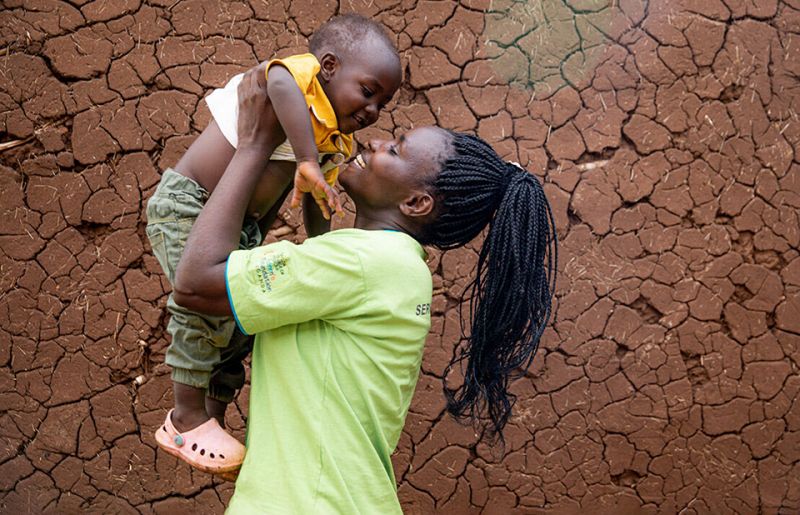Brazzaville, Geneva, Nairobi, 2 December 2021 – Botswana has become the first high-burden country to be certified for achieving an important milestone on the path to eliminating mother-to-child transmission of HIV by the World Health Organization (WHO).
High-burden HIV countries are defined as those with more than 2% of pregnant women living with the virus. Botswana has achieved the “silver tier” status, which moves it closer to eliminating mother-to-child HIV transmission. WHO awards this certification to countries which have brought the mother-to-child HIV transmission rate to under 5 %; provided antenatal care and antiretroviral treatment to more than 90 % of pregnant women; and achieved an HIV case rate of fewer than 500 per 100,000 live births.
“This is a huge accomplishment for a country that has one of the most severe HIV epidemics in the world – Botswana demonstrates that an AIDS-free generation is possible,” said Dr Matshidiso Moeti, WHO Regional Director for Africa. “This groundbreaking milestone is a big step forward in ending AIDS on the continent and shows how visionary political leadership aligned with public health priorities can save lives. I look forward to other African countries also reaching this goal.”
Globally, 15 countries have been certified for eliminating mother-to-child HIV transmission. None of them had an epidemic as large as Botswana. The country’s feat to date on its journey to elimination is the result of a national response strategy spanning two decades. In 1999 and facing an HIV prevalence rate as high as 30%, Botswana initiated an aggressive programme to prevent mother-to-child transmission.
“Botswana’s pathfinding accomplishment demonstrates the remarkable progress that can be achieved when the needs of mothers living with HIV and their children are prioritized,” said Winnie Byanyima, UNAIDS Executive Director. “Children are among the groups left furthest behind in the HIV response. Addressing this inequality and preventing new HIV infections in children is critical if we are to end AIDS. Political commitment, strong leadership and the hard work of dedicated health care workers and communities in Botswana have delivered impressive results.”
Women living with HIV who do not receive antiretroviral (ARV) medicine have a 15–45% chance of transmitting the virus to their children during pregnancy, labour, delivery or breastfeeding. That risk drops to less than 5% if treatment is given to both mothers and children throughout the stages when transmission can occur. Botswana quickly achieved national ARV coverage before going on to implement increasingly effective regimens, following WHO guidance.
In 2013, Botswana became one of the first countries in the world to implement the so-called ‘Option B+’, a plan for treating all pregnant and breastfeeding women living with HIV with a highly effective lifelong triple antiretroviral treatment regimen at the time of diagnosis.
Mohamed Fall, UNICEF Regional Director for Eastern and Southern Africa, asserted that the country’s progress could serve as an example for others.
“We applaud Botswana for this remarkable achievement, which serves as inspiration to other countries in Eastern and Southern Africa,” said Mr Fall. “The progress on prevention of mother to child transmission of HIV in this region is truly a public health success, with more than 1.7 million new infections in children averted since 2010. We look forward to congratulating other countries very soon and continuing the journey to full and sustained elimination over time.”
The global validation criteria and processes date to 2015, when UNAIDS, UNICEF, WHO and other partners created the Global Validation Advisory Committee to standardize the measurement of achievements for eliminating mother-to-child transmission of HIV and syphilis. In 2017 and in recognition of the achievements made by countries with a high burden of HIV that were demonstrating significant and sustained reductions in the mother-to-child transmission rate, new Path to Elimination criteria were introduced. The elimination agenda has broadened to a “triple elimination” of mother-to-child transmission of HIV, syphilis and hepatitis B.
Botswana is now updating its guidance regarding syphilis and will expand its elimination objectives moving forward.
Please click the link below for audio-visual material: https://drive.google.com/drive/folders/1s9cONZBU2rkZtRZrpRGRXED2AJj5_3Yc?usp=sharing
UNICEF
UNICEF works in some of the world’s toughest places, to reach the world’s most disadvantaged children. Across 190 countries and territories, we work for every child, everywhere, to build a better world for everyone. For more information about UNICEF and its work for children, visit www.unicef.org. Follow UNICEF on Twitter and Facebook
WHO
The World Health Organization contributes to a better future for people everywhere. Good health lays the foundation for vibrant and productive communities, stronger economies, safer nations and a better world. As the lead health authority within the United Nations system, our work touches people’s lives around the world every day. In Africa, WHO serves 47 Member States and works with development partners to improve the health and well-being of all people living here. The WHO Regional Office for Africa is located in Brazzaville, Congo. Learn more at www.afro.who.int and follow us on Twitter, Facebook and YouTube.
UNAIDS
The Joint United Nations Programme on HIV/AIDS (UNAIDS) leads and inspires the world to achieve its shared vision of zero new HIV infections, zero discrimination and zero AIDS-related deaths. UNAIDS unites the efforts of 11 UN organizations—UNHCR, UNICEF, WFP, UNDP, UNFPA, UNODC, UN Women, ILO, UNESCO, WHO and the World Bank—and works closely with global and national partners towards ending the AIDS epidemic by 2030 as part of the Sustainable Development Goals. Learn more at unaids.org and connect with us on Facebook, Twitter, Instagram and YouTube.





